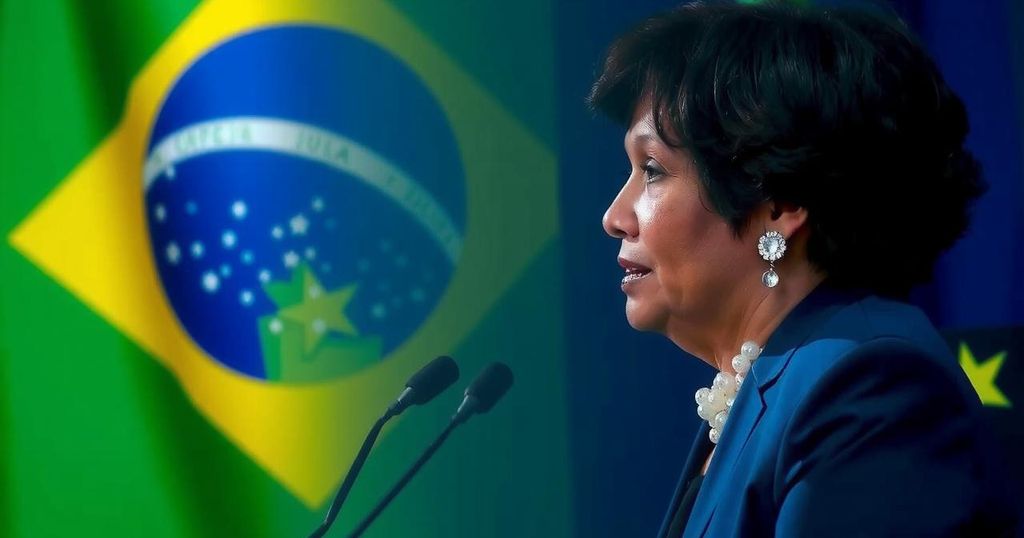Brazilian Officials Call Out Argentina’s Withdrawal from COP29 as Detrimental to Global Climate Action

Brazil’s Environment Minister Marina Silva criticizes Argentina’s withdrawal from COP29, viewing it as detrimental to global climate efforts. She reassures that it will not obstruct ongoing negotiations for climate financing. Silva highlights the severe implications of climate change on society, while Vice-President Alckmin warns of potential economic repercussions for Argentina, condemning denialist perspectives on the issue.
Marina Silva, Brazil’s Minister of Environment and Climate Change, expressed her concerns on Thursday regarding Argentina’s withdrawal of its delegation from the 29th Conference of Parties (COP29) taking place in Baku, Azerbaijan. She described this action as contrary to global climate efforts, noting that President Javier Milei’s stance would not impede the ongoing discussions aimed at securing financial support for developing nations in meeting environmental commitments. Silva stated, “All societies are paying a very high price for climate change,” emphasizing that inaction from any country exacerbates the situation impacting lives, agriculture, and industry. Silva expressed optimism regarding the upcoming climate negotiations at the G20 Summit scheduled for November 18–19 in Rio de Janeiro, asserting that significant progress had been achieved in previous discussions, specifically in integrating the climate and finance agendas. She further remarked that it would be misguided to disregard the potential dangers climate change poses to families and businesses due to a lack of commitment to agreements like the Paris Agreement. Vice-President Geraldo Alckmin echoed these sentiments, condemning Milei’s denial of climate change and spotlighting the necessity of scientific advancement in human welfare. He cautioned that Argentina might face economic setbacks, specifically a decline in GDP, however asserted that the diplomatic relations between states remain unaffected by individual leadership decisions. In summary, both Silva and Alckmin articulated their discontent towards President Milei’s withdrawal from COP29, while affirming their commitment to climate negotiations and advocating for continued engagement with scientific principles to address climate change impacts.
The context of this article stems from recent climate change negotiations and the increasing focus on global environmental issues, particularly at forums such as the COP29 and G20 Summits. The actions of Argentina’s President Javier Milei are seen as part of a broader challenge to international climate agreements, which aim to unite countries in combating climate change impacts. In Brazil, leaders are particularly concerned about the potential ramifications this could have on collaborative efforts to mitigate climate change, especially among developing nations.
In conclusion, Brazil’s Environment and Climate Change Minister Marina Silva’s comments underscore the critical importance of collective action in addressing climate issues. The withdrawal of Argentina’s delegation from COP29 is viewed as a regressive step that could hinder international efforts to finance adaptation for climate-vulnerable nations. Both Silva and Vice-President Alckmin emphasize the necessity of adhering to scientific guidance and maintaining diplomatic relations to effectively tackle the challenges posed by climate change.
Original Source: en.mercopress.com





